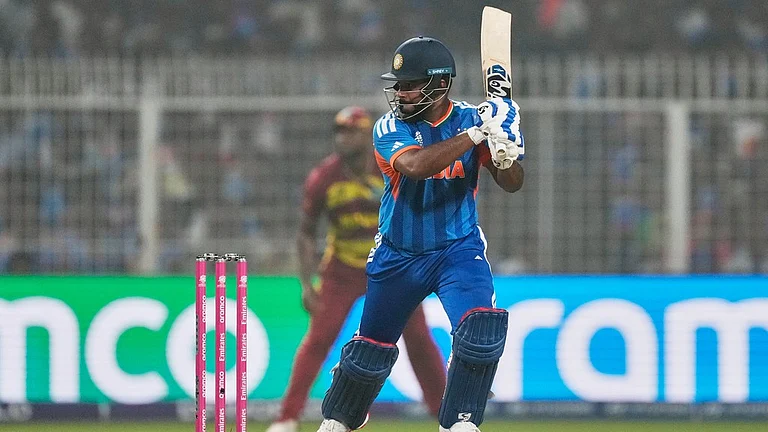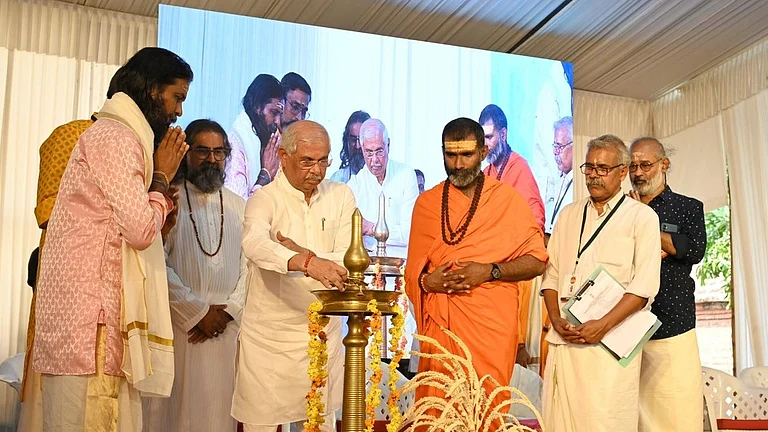
Summary of this article
Kerala will host its first-ever Kumbh Mela from January 18 to February 3, 2026, at Thirunavaya in Malappuram.
The event will be led by Juna Akhara, one of India’s oldest and largest religious orders.
The festival revives Kerala’s ancient Maha Makham tradition linked to the Bharathapuzha river.
Kerala is preparing to host its first-ever Kumbh Mela, taking inspiration from the grand religious congregation traditionally held in northern India. The event, which marks a historic first for the state, will take place from January 18 to February 3, 2026, on the banks of the Bharathapuzha river, in front of the Thirunavaya Nava Mukunda Temple in Malappuram district.
A reception committee will be set up on November 23 to coordinate the events. The akhara’s Mahamandaleshwar Swami Anandavanam Bharathi told TNIE that the body will take the lead in organising the festival in Kerala.
Swami Anandavanam, who hails from Kerala and is only the third person from the state to achieve the rank of Mahamandaleshwar, was earlier associated with the Students’ Federation of India (SFI) before embracing monastic life. He said Kerala shares a strong spiritual heritage similar to that of the northern Kumbh Melas.
“In Thirunavaya, Maha Makham was held during the time of Cheraman Perumal. This was equivalent to the Kumbh Mela held in north India,” he said, adding that the upcoming event aims to revive that ancient tradition.
Swami Anandavanam also noted that Maha Makham festivals were historically observed not only in Thirunavaya but also in Kumbakonam, Tamil Nadu, and are associated with the appearance of the Makam star.
The New Indian Express reported that the seer visited the Thirunavaya temple on Wednesday and recounted how, during the time of the Chera dynasty, Maha Makham served as a major spiritual and social congregation where seers, scholars, and rulers met to deliberate on the principles of Sanatana Dharma. “During the festival, yanjam and yagam were performed and a new king was selected. After the reign of the last Perumal, Sundara Moorthi, the leadership passed to Perumpadappu Swaroopam and later to Valluva Konathiri, taking on a more martial form,” he said.
In 2016, the temple’s chief priest had initiated river worship rituals on the Bharathapuzha as part of reviving the ancient Maha Makham tradition. These rituals continued regularly, except during the Covid-19 pandemic, TNIE reported.
The Juna Akhara has now announced plans to hold a full-scale Maha Makham (Kumbh Mela) in 2028, marking the next 12-year cycle of the traditional festival. Ahead of that, it intends to make the 2026 event a major spiritual gathering in Kerala’s history.
Swami Anandavanam said the akhara would soon reach out to both the Malabar and Travancore Devaswom Boards seeking support for the 2026 event. “The seers from other akharas will also come. All the seers and ashrams in Kerala will be part of this,” he added.
(With inputs from The New Indian Express)






















